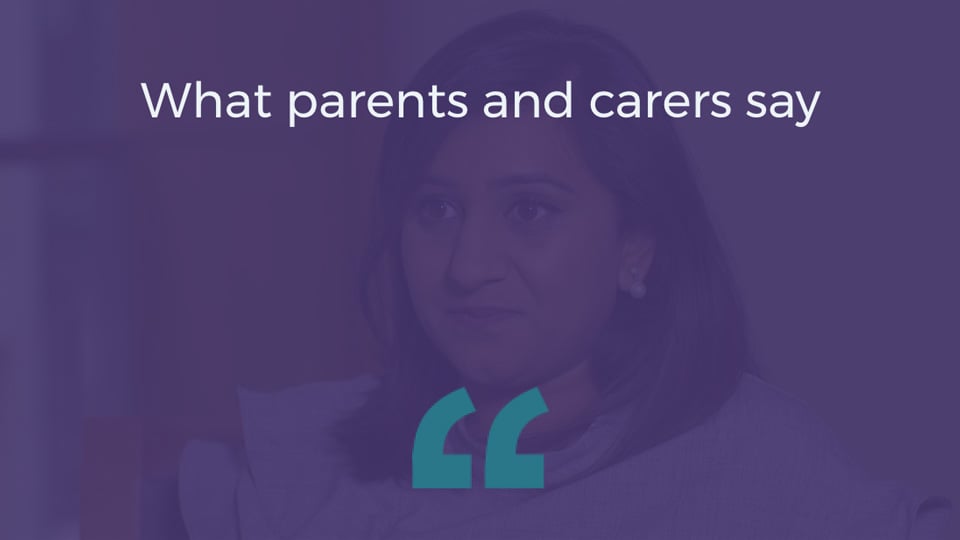Newsletter Sign Up
Regular work+family updates for
HR and diversity professionals.
This week we asked a father and his grown up son the same questions and got surprisingly similar responses - both seem to think there are elements of blessing and curse - although not the same elements!
My Family Care asks Chris and Andy: The current generation of children is being raised on technology, but many of us are still of the ilk that used libraries for projects and textbooks for answers. Is technology a blessing or a curse? Is it too intrusive, or is Big Brother a safety net? Does technology make for stronger family bonds, or does it weaken the family unit?
Technology from a Dad's point of view
Long before the internet, the iPad, or the iPhone, a teacher friend visited us for the weekend. Interested in the bedside books our three boys were reading, he went into each of their rooms to have a look...
"Totally Unsuitable" was his comment on our 12 year old's book. Was that book a blessing? No. Was it a curse? Yes. Was there a safety net? Yes. Was it being used? No. Who was responsible? His parents. What should we have done? Moved on from the belief that reading a book, any book, was a good thing, and thought much more about the content of it.
The technological elephant inside - and outside - of today's home magnifies both the blessing and the curses of viewed content compared with the hard copy of yesteryear - parental responsibilities, however, are no different. Exercising these responsibilities in modern day parenting is far more challenging with a greater potential to weaken family bonds and values.
Reading from a young age
The Jesuits' claim 'give me a child until he/she is seven and I will show you the adult,' which may be of some comfort to anxious parents. Reading to young children contributes to family bonds, and can - and should - be drawn from a combination of screens and hard copy.
Establish the diverse potential of modern technology at an early stage. Generate awareness that some content they come across may contain inappropriate language, levels of violence etcetera.
Accompany each application with parental guidance as to the frequency and supervision attached to its use. Games will be different from Skype; will be different from iPads; will be different from text messaging; will be different from TV, Cartoons and Films and will be different from access to the Internet.
Include books and visits to libraries in the mix to help develop a child's attention span and establish the notion of quiet times - the absence of which can be exhausting for today's parents.
Keep a number of safeguards in place
Maintaining the supervision and transparency of content provides the toughest challenge for today's family as children become more independent, particularly as the younger generation are so often more familiar with technology than their parents.
Apart from utilising safeguards from technology providers, allocating a dedicated space in the home for IT interactions with a culture of openness and mutual interest will help to influence responsible usage.
Parents should ensure that they are a 'Facebook Friend' to their teenage children and take an interest in what is shared and be prepared to comment. Establish no-go areas and times for the technology, such as bedrooms and during meal times.
Use the technology as a slave and not a master in developing and managing family interests in sport, music, travel and other leisure activities outside of the home - all of which will help strengthen family bonds.
Information technology is both a blessing and a curse. Its beneficial and constructive role in family life will be determined at an early stage, and in so doing will hopefully avoid the incessant cajoling and warnings so harmful to family unity.
Chris Major, Retired, Father of 3 boys
His son's perspective on technology
What's the first thing that comes to mind when you hear the word 'technology'? Antibiotics, flying, sliced bread... or Wi-Fi, video conferencing, smart phones and the internet? These days, it's more likely the latter. But does such technology make for stronger family bonds, or weaken the family unit?
As a grown-up-ish person without children, I'm passing comment with admittedly no experience. I'm not the one in charge of raising a family yet, but I have seen the prevalence of technology in family life rise from when I was a child to now. I have seen a change in how people bring up children - be that family, friends, or the wider community - and I hold fairly strong views about technology and its place in family life.
Change is normal and, like it or not, technological advancement is part and parcel of everyday life. Ultimately, this should always be used to positive effect. And if the technology you and your family use is impacting negatively on any part of your lives, then either you are not using it correctly, or perhaps shouldn't be using it at all. Everything's got an off button, but no one's going to press it for you.
The need for closure
As a youngster, technology was exciting because it was all so new. It was a distraction - something almost otherworldly - but nowadays technology is not so much new, rather a faster, thinner, lighter iteration of what was there before.
As such, children are growing up with technology so engrained into everyday life that the element of escapism is somewhat lost. There is little of the world undiscovered, or facts that are more than a touch of a button away. You don't have to work to get information. And if you believe the press, even the art of reading now seems to be fading into obscurity.
With a book you have a beginning, a middle and an end; online you don't find closure. Links to other apps, articles and video content all vie for your attention, and are presented very much in an insular and self-contained fashion. More social activities, with a beginning, middle and (hopefully satisfying!) end, have to be more rewarding for any family dynamic.
Too much, too soon
Nowadays there is so much external stimuli that the mind struggles to process the competing information. As a result, this impacts not only on concentration but also levels of retention, for children and adults alike.
How's your short term memory? Good as it ever was? You can Google stuff you've mentally misplaced, but is that a good thing? And is it a surprise that the rise of conditions such as ADHD coincides with the advent of this 'new and improved' technology?
With access to so much 'stuff', is it a surprise that sitting down for half an hour in class to focus on a single subject matter is tricky? Take it a step further - why do children need to learn? They know they will be able to access whatever information they want, when they like. So what's the point of schooling?!
Start educating early
You only have to look around at the number of people walking the streets with heads down, eyes fixed to a screen, to understand just how deeply engrained 'technology' has become, and how dangerously habit-forming it is.
This might sound somewhat antiquated, but to me, being able to watch TV on your phone is not a huge social advancement. A sweeping generalisation, but today's teenagers are tomorrow's parents, and I feel this is where the message needs to be most firmly directed.
Set a good example
With the level and complexity of technological solutions available, it's very easy to give a child a phone or a tablet and let them passively consume. I've seen children not even toddling who have perfected 'swiping', flicking through content with ease.
Is that lazy parenting? Maybe. Is it something I'd see myself doing with my kids? I'd like to say no, but can't make any promises. What you can safely say is that if that became the norm, over time you wouldn't see it being great for the family dynamic.
Start to form habits
Your children will follow your example. If you're innocently checking email on your phone, don't expect them to act any differently, or tell them off for wanting to spend more time on their own tablets - or yours! You are making that an acceptable precedent for them to follow.
The average person checks their phone 110 times a day, so you might see where the problem lies. Children need to be educated about technology, as do parents; it's a message that is not just for the young.
Of course there are parallels between technology and entertainment, but it's where the two paths cross that family bonds are at the most risk. We seem to be at a point where technology is perceived as an enabler to entertainment, and that is a dangerous place, especially when it comes to raising children and family ties.
If it's not working, switch it off. You can't expect a smartphone to change its habits... Yet!
Andy Major, Director, Good Care Guide












